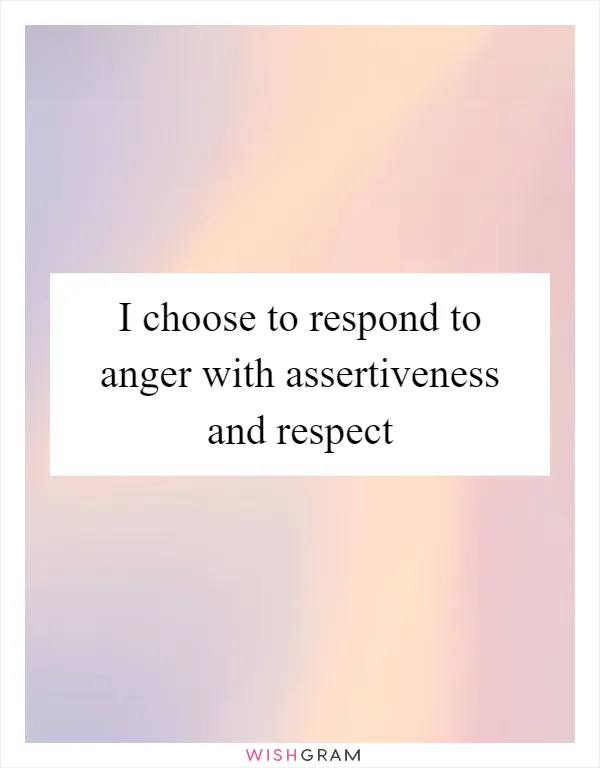I choose to respond to anger with assertiveness and respect
The affirmation "I choose to respond to anger with assertiveness and respect" can help you navigate difficult situations. When someone is angry, it can be easy to react with anger or defensiveness. However, responding with assertiveness and respect can help you maintain control of the situation and diffuse the other person's anger.
Assertiveness means standing up for yourself and expressing your needs and boundaries in a clear and confident manner. It does not mean being aggressive or confrontational. When someone is angry, it can be helpful to calmly assert your position and communicate your boundaries. For example, you might say something like, "I understand that you're upset, but I need you to speak to me respectfully if we're going to have a productive conversation".
Respect is also an important component of responding to anger. Even if the other person is not showing you respect, it's important to maintain your own respectful behavior. This can help de-escalate the situation and prevent it from becoming more heated. You might show respect by actively listening to the other person's concerns, acknowledging their feelings, and avoiding personal attacks or insults.
It's important to remember that responding to anger with assertiveness and respect is a choice. You have the power to control your own behavior and reactions, even in difficult situations. By choosing to respond with assertiveness and respect, you can maintain your own dignity and integrity while also working towards a positive resolution.
Of course, responding to anger with assertiveness and respect is not always easy. It can take practice and patience to develop these skills. However, the more you practice, the easier it will become. You might find it helpful to role-play different scenarios with a friend or family member, or to seek out resources such as books or workshops on assertiveness and conflict resolution.
